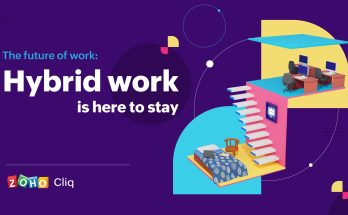For decades, online communities have flourished as vibrant hubs of shared interests, support, and collective action. From early internet forums to modern social media giants, these digital spaces have connected billions, fostering friendships, movements, and entirely new subcultures. However, the current iteration of online communities, largely built on what’s known as “Web2” platforms, operates under a centralized model. This means platforms like Facebook, X (formerly Twitter), and Reddit own the infrastructure, dictate the rules, monetize user data, and ultimately control the community’s destiny. This inherent power imbalance, coupled with concerns about data privacy, censorship, and opaque algorithms, has laid the groundwork for a revolutionary shift: Web3, which promises to fundamentally reshape online communities by putting ownership and control back into the hands of the users.
At its core, Web3 represents the next generation of the internet, built on decentralized technologies like blockchain. Unlike Web2, where users are merely consumers of content and services controlled by a central authority, Web3 empowers users to be participants, creators, and even owners. This shift is not just about technology; it’s about a philosophical re-imagining of digital interaction, emphasizing concepts like decentralization, transparency, and self-sovereignty. When applied to online communities, Web3 technologies enable entirely new models of governance, value creation, and engagement, moving away from the “platform-as-landlord” dynamic to a more collaborative, user-owned future.
One of the most profound impacts of Web3 on online communities is the concept of true digital ownership. In Web2, while you might “own” your content in a legal sense, the platform often controls its distribution, monetization, and even its continued existence. With Web3, through technologies like non-fungible tokens (NFTs) and fungible tokens, community members can own digital assets directly. For instance, membership in a Web3 community might be token-gated, meaning holding a specific NFT or a certain amount of a particular cryptocurrency grants you access and privileges. This creates a tangible stake in the community, transforming passive users into active stakeholders. This shared ownership fosters a deeper sense of belonging and commitment, as members are directly invested in the community’s success and longevity.
Furthermore, Web3 introduces unprecedented levels of decentralized governance, primarily through Decentralized Autonomous Organizations (DAOs). In a DAO, the rules and decision-making processes of a community are encoded in smart contracts on a blockchain. This allows community members, typically those holding governance tokens, to vote directly on proposals that affect the community’s future – from treasury allocation and new feature development to content moderation policies. This shifts power away from a centralized moderator team or corporate entity to the collective will of the community itself. For example, a DAO governing a gaming community could allow players to vote on game updates, character abilities, or even how treasury funds are used to support new initiatives. This transparent, community-driven decision-making builds trust and ensures that the community truly serves the interests of its members, rather than external stakeholders.
The economic models within Web3 communities also represent a significant departure from Web2. In the traditional model, platforms profit from user data and advertising, with little direct compensation flowing back to content creators or active community members. Web3 flips this script through tokenized incentive systems. Community members can be directly rewarded with tokens for their contributions – whether it’s creating valuable content, moderating discussions, identifying bugs, or simply engaging actively. These tokens can have real-world value, creating a “creator economy” or “contributor economy” where users are financially aligned with the community’s growth and success. This fosters a vibrant ecosystem where participation is not just about social recognition but also tangible benefits, attracting talent and incentivizing sustained engagement.
Consider platforms like Lens Protocol or Farcaster, which are emerging as decentralized alternatives to traditional social media. Users own their social graphs and content, can port their data across different applications built on the same protocol, and engage in token-gated communities. Similarly, in the realm of gaming, Web3 communities are allowing players to own in-game assets as NFTs, participate in game governance through DAOs, and even earn cryptocurrency by playing, fundamentally reshaping the player-developer relationship. These examples highlight how Web3 is transforming online communities from mere gathering places into thriving, self-sustaining digital economies.
However, the transition to Web3 communities is not without its complexities and challenges. User experience remains a significant hurdle; the tools for interacting with Web3, such as crypto wallets and blockchain transactions, can be intimidating for newcomers. Scalability issues with underlying blockchain networks can lead to high transaction fees and slow processing times, impacting user engagement. Regulatory uncertainty also looms large, as governments grapple with how to classify and oversee decentralized entities. Furthermore, ensuring true decentralization and preventing the concentration of power among large token holders or early adopters is an ongoing design challenge within DAOs. The current reliance on Web2 platforms like Discord and Telegram for community communication, despite the decentralized nature of Web3 projects, also points to a hybrid reality that will persist for some time.
Despite these hurdles, the momentum for Web3 to reshape online communities is undeniable. As the technology matures, becomes more user-friendly, and gains mainstream adoption, the benefits of true ownership, transparent governance, and aligned incentives will become increasingly apparent. The future of online communities is likely to be characterized by spaces where users are not just visitors but co-owners, co-creators, and decision-makers, fostering more resilient, equitable, and vibrant digital ecosystems. Web3 isn’t just about decentralizing the internet; it’s about re-humanizing our online interactions by empowering the collective, promising a more authentic and rewarding experience for everyone involved.



